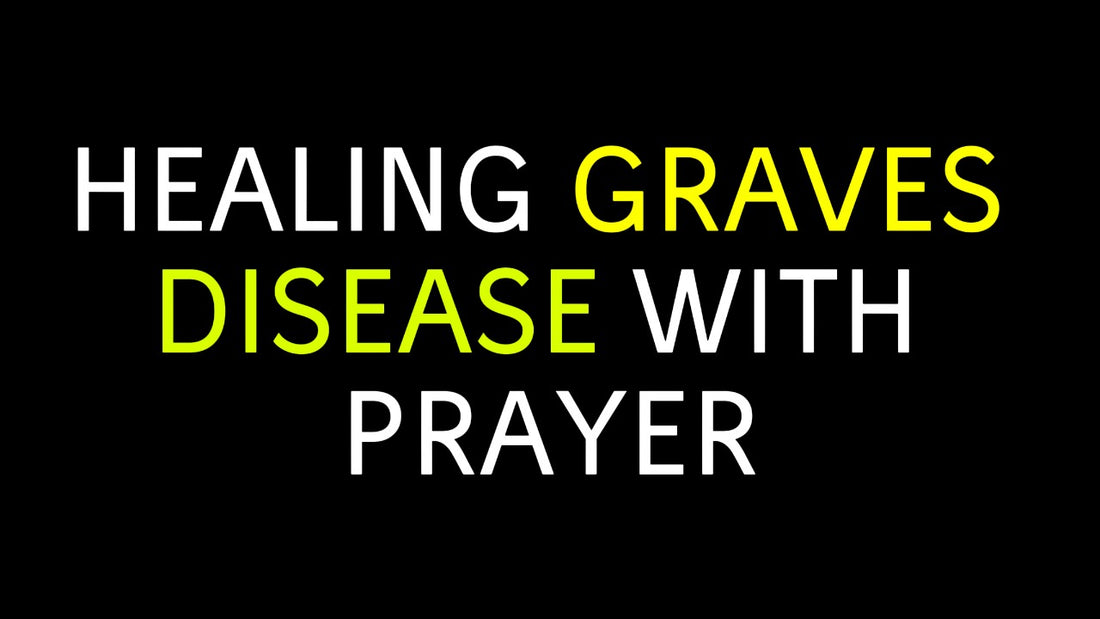Living with a chronic illness like Graves disease can be overwhelming and challenging. But I’m here to share a story of hope and resilience, grounded in faith and the power of prayer.
I know what it’s like to face adversity, and I’ve learned firsthand that with faith, even the most difficult seasons can turn into testimonies of strength and healing.
Understanding Graves Disease
Graves disease is an autoimmune disorder that primarily affects the thyroid, leading to symptoms like anxiety, rapid heartbeat, weight loss, and fatigue. It’s a condition that often comes out of the blue, bringing physical, emotional, and social challenges that can make daily life feel like an uphill battle.
Symptoms and Diagnosis
The symptoms of Graves disease can vary from person to person but often include:
- Unexplained weight loss despite normal or increased appetite
- Tremors in the hands or fingers
- Heat sensitivity and increased sweating
- Bulging eyes (in cases of Graves ophthalmopathy)
- Rapid or irregular heartbeat
Diagnosis typically involves a combination of blood tests to measure thyroid hormone levels, imaging tests like thyroid ultrasound or radioactive iodine uptake, and a detailed evaluation of symptoms. Once diagnosed, the journey toward finding a suitable treatment can be complex and exhausting.
Treatment Options
There are several treatment options available for Graves disease, each with its own set of benefits and potential drawbacks:
- Anti-thyroid Medications: These help to reduce the production of thyroid hormones.
- Radioactive Iodine Therapy: A common treatment that targets the thyroid gland to reduce hormone levels.
- Surgery: In some cases, surgery to remove the thyroid gland (thyroidectomy) may be recommended.
- Lifestyle Adjustments and Supportive Care: Managing stress, improving diet, and addressing mental health are critical parts of the treatment plan.
Impact on Daily Life
Living with Graves disease is more than just managing symptoms. It’s about coping with the physical changes, dealing with the emotional toll, and finding ways to remain engaged in social life even when fatigue or anxiety make it hard. As someone who’s walked through various health challenges, I can attest that the impact goes beyond the physical—it touches every part of who you are. But that’s where faith becomes a powerful ally.
The Role of Faith in Healing
I remember the day I was diagnosed with a health condition that left me feeling vulnerable and afraid. But in the midst of it all, I turned to prayer—not as a last resort, but as my first line of defense. I prayed for strength, for guidance, and most importantly, for peace. It was during these quiet moments with God that I felt a calmness washing over me, even when the medical reports seemed daunting.
Personal Stories of Strength
I’m not alone in experiencing the power of faith in the healing journey. Many individuals diagnosed with Graves disease have found solace in their spiritual practices. One friend of mine, Emily, was diagnosed at the age of 45. The symptoms were so severe that she had to leave her job. But Emily chose to see her illness as an opportunity to deepen her relationship with God. Through prayer and visualization, she found the strength to undergo surgery and eventually made a full recovery. Today, she’s back at work, more vibrant than ever, and credits her faith for giving her the resilience to fight on.
Scientific Research and the Mind-Body Connection
While prayer and faith may not replace medical treatment, studies have shown that a strong belief system can have a positive impact on health outcomes. The mind-body connection is real. Positive thinking, prayer, and meditation have been found to lower stress levels, improve immune function, and even speed up recovery times. It’s a phenomenon that many scientists attribute to the placebo effect, but as a person of faith, I see it as God’s hand at work.
Overcoming Challenges
When faced with a diagnosis like Graves disease, it’s normal to feel fear and uncertainty. I know I did. There were nights I lay awake, asking God why this was happening to me. But each time, I felt His gentle nudge, reminding me that He was with me every step of the way.
Coping with Fear and Uncertainty
One of the hardest parts of any illness is the uncertainty it brings. Will I get better? What if the treatment doesn’t work? These are questions that can keep you up at night. But faith helps to anchor your soul. When fear tries to creep in, I’ve learned to speak God’s promises over my life. Verses like Isaiah 41:10, “Do not fear, for I am with you; do not be dismayed, for I am your God,” became my daily affirmations.
Finding Support and Community
Navigating life with a chronic illness is not something you should do alone. I found that joining a support group of women going through similar health struggles made a huge difference. Sharing experiences, praying together, and encouraging one another can create a strong sense of community and support.
Building Resilience and Hope
Graves disease doesn’t have to define your life. With faith, you can build resilience and hope even when the road ahead seems long and uncertain. I encourage you to keep a journal of your prayers and answered prayers. Looking back on how God has come through in the past can be a powerful reminder that He is still in control.
The Spiritual Journey
In every trial, there’s an opportunity for growth. Illness, as hard as it is, can lead to profound spiritual discoveries.
Exploring Different Spiritual Perspectives on Illness
Different religions have various perspectives on illness and suffering. As a Christian, I believe that God can use even the hardest circumstances for good. It’s not always easy to see His hand at work when you’re in pain, but trust that He is shaping you through the process.
The Role of Prayer and Meditation in Finding Meaning and Purpose
During my own health journey, I found that incorporating meditation and quiet reflection into my day helped me feel more centered. Prayer became not just a request for healing but a way to connect with God on a deeper level. It helped me find meaning and purpose even in the struggle.
Divine Healing and Miracles
Does God still perform miracles today? I believe He does. I’ve seen people with serious illnesses, including Graves disease, experience unexplained recoveries after fervent prayer. While not everyone may receive physical healing, I’ve learned that sometimes the greatest miracle is a change in perspective—a shift from despair to hope, from fear to faith.
Final Thoughts: Faith in the Face of Adversity
Living with Graves disease is undoubtedly challenging, but faith can be a source of strength, hope, and even healing. If you or a loved one is walking through this journey, I encourage you to hold onto God’s promises. Seek out community, speak words of life and healing over yourself, and trust that even in this, God is with you. With prayer, resilience, and a positive mindset, it’s possible to overcome the adversity that Graves disease presents.

